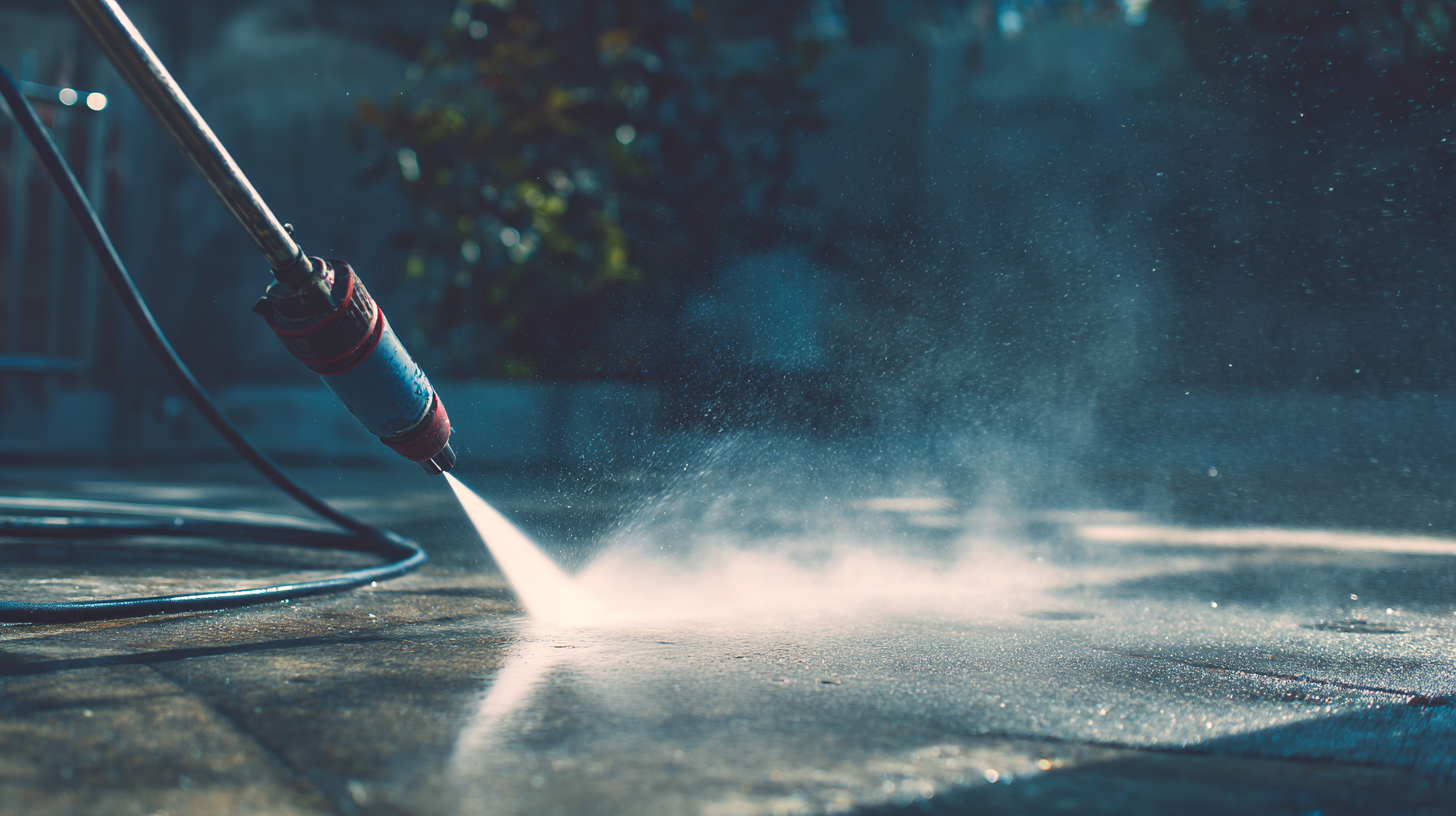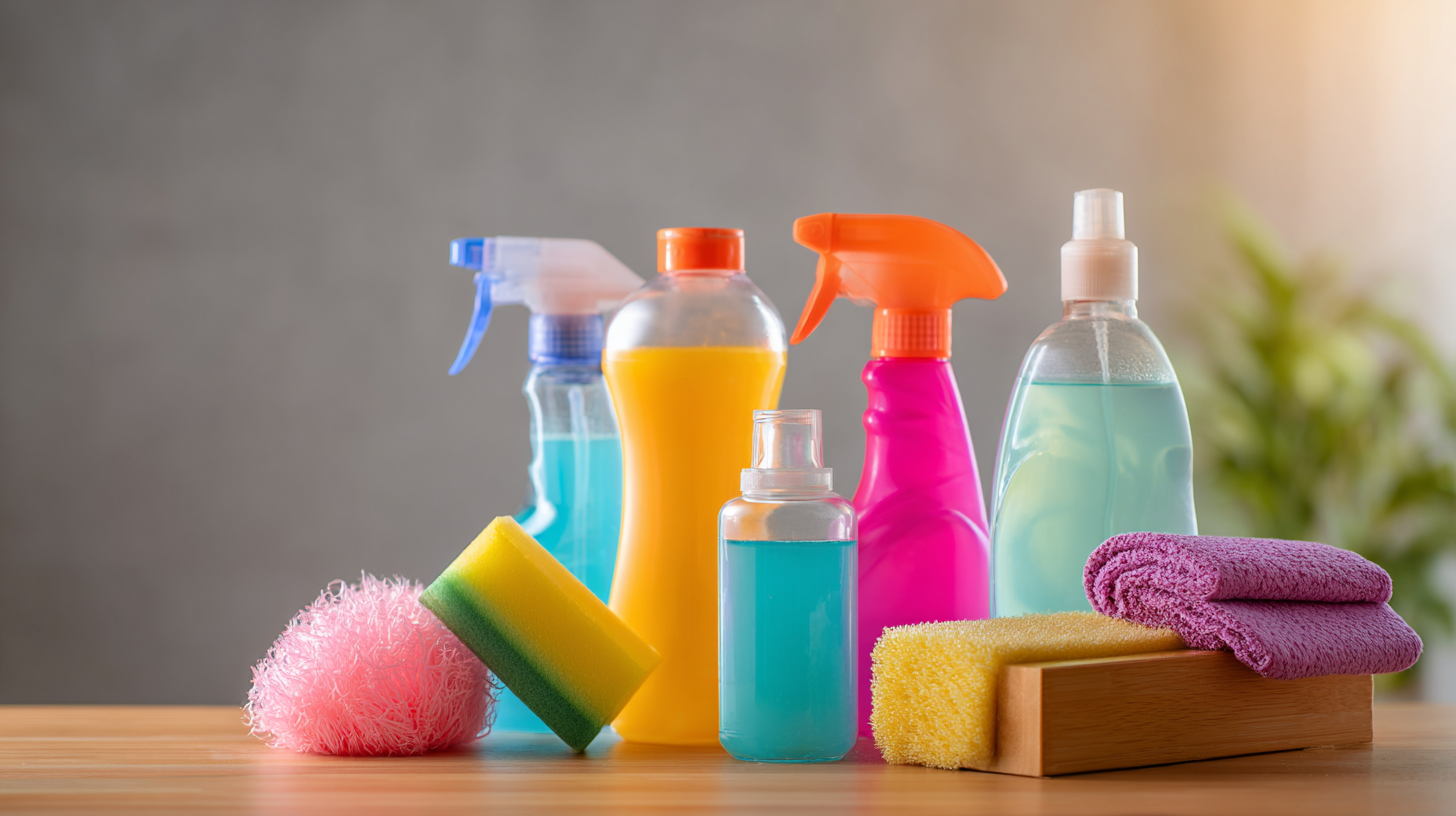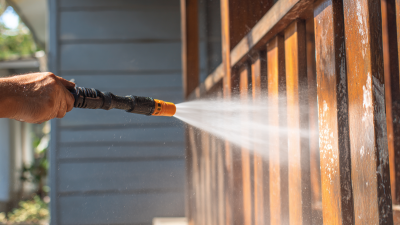The Ultimate Guide to Choosing the Best Soft Washing Equipment for Your Cleaning Business
In the cleaning industry, the choice of equipment can significantly impact the quality of service provided and overall business performance. As the demand for exterior cleaning services continues to grow, with the pressure washing industry projected to reach $1.63 billion by 2027 (according to market research), the importance of investing in the right tools cannot be overstated.
 Soft washing, a gentler alternative to traditional pressure washing, effectively removes mildew, bacteria, and other organic growth from surfaces without causing damage. For cleaning professionals looking to enhance their service offerings, understanding the nuances of soft washing equipment becomes paramount. This guide aims to navigate you through the essential considerations and types of soft washing equipment available, ensuring your cleaning business stands out in a competitive market and meets the rising customer expectations for quality and safety.
Soft washing, a gentler alternative to traditional pressure washing, effectively removes mildew, bacteria, and other organic growth from surfaces without causing damage. For cleaning professionals looking to enhance their service offerings, understanding the nuances of soft washing equipment becomes paramount. This guide aims to navigate you through the essential considerations and types of soft washing equipment available, ensuring your cleaning business stands out in a competitive market and meets the rising customer expectations for quality and safety.
Evaluating Your Cleaning Business Needs: Key Considerations for Soft Washing Equipment Selection
When selecting soft washing equipment for your cleaning business, it is crucial to evaluate your specific needs to ensure maximum efficiency and effectiveness. One key consideration is the type of surfaces you will be cleaning. According to industry reports, soft washing is ideal for delicate surfaces like roofs and siding, as traditional pressure washing can cause damage. A reliable soft wash system ensures that you can safely and effectively clean without the risk of harming your equipment or the surfaces you maintain.
Another critical factor is the scale of your operations. If your business is expanding, you might require higher-capacity equipment that can handle larger jobs. Research indicates that a substantial portion of cleaning businesses report increased client satisfaction and retention through the use of appropriate, high-quality soft washing systems. Additionally, you should consider ease of use and maintenance. Equipment that offers simple setup and routine maintenance can save you time and operational costs in the long run, contributing to your overall productivity. Prioritizing these factors will help you choose the best soft washing equipment tailored for your cleaning business, ensuring a balance between quality service and operational efficiency.

Understanding Soft Washing Technology: How It Differs from Traditional Pressure Washing
Soft washing technology has emerged as a superior alternative to traditional pressure washing, especially for delicate surfaces. Unlike pressure washing, which uses high-pressure water jets that can damage materials like wood, roof shingles, and painted surfaces, soft washing utilizes a low-pressure stream combined with specialized cleaning solutions. This method effectively eliminates organic contaminants such as algae, moss, and dirt without risking harm to the substrate, ensuring a deeper clean that lasts longer.
Tips: When selecting soft washing equipment, prioritize systems that offer adjustable pressure settings and high-quality chemical injectors. This will allow you to customize the cleaning process according to various surfaces and contamination levels.
Additionally, investing in a reliable power source and hose length is crucial, as it affects your mobility and efficiency during cleaning jobs. Look for equipment with durable materials that can withstand prolonged use, ensuring you can tackle a variety of projects without the need for frequent replacements.
The Ultimate Guide to Choosing the Best Soft Washing Equipment for Your Cleaning Business
| Equipment Type | Water Pressure (PSI) | Water Flow Rate (GPM) | Ideal Cleaning Surface | Typical Applications |
|---|---|---|---|---|
| Soft Wash System | 100-500 PSI | 3-8 GPM | Roofs, Siding | Mold and Mildew Removal |
| Pressure Washer | 1500-4000 PSI | 2-5 GPM | Concrete, Brick | Stains and Dirt Removal |
| Chemical Injector | N/A | N/A | Various Surfaces | Chemical Solution Application |
| Surface Cleaner | 1000-3000 PSI | 4-10 GPM | Flat Surfaces | Driveways, Patios |
Essential Features of Soft Washing Equipment: What to Look For in a Quality System
When selecting soft washing equipment for your cleaning business, understanding the essential features is key to ensuring you invest in a quality system. One critical aspect to consider is the pressure output; many industry experts recommend that a soft washing system should operate between 40 to 80 PSI. This range is crucial as it protects delicate surfaces while effectively removing dirt, mold, and mildew without causing damage. Additionally, look for systems equipped with a reliable proportioner for mixing cleaning solutions. According to a report by Allied Market Research, the global pressure washing market is projected to reach $1.25 billion by 2026, indicating a rising demand for effective soft washing systems that will meet the needs of both residential and commercial clients.
Another vital feature is the durability of the components. Soft washing equipment often operates with a variety of detergents and solutions that can corrode inferior materials. Investing in equipment constructed with high-grade materials, such as stainless steel and chemical-resistant plastics, can prolong the life of the system and maintain consistent performance. Furthermore, advanced systems now come with integrated tracking and monitoring technologies, enhancing operational efficiency and providing valuable data to streamline processes. Statista's recent findings reveal that businesses employing modern cleaning technologies see up to a 30% increase in productivity, highlighting the importance of investing in equipment that combines durability with modern technological advancements.
Cost Analysis of Soft Washing Equipment: Balancing Quality and Budget for Your Business
When it comes to selecting soft washing equipment for your cleaning business, understanding the cost implications is crucial. The initial investment can vary significantly depending on the quality and type of equipment you choose.
 Higher-end models may come with advanced features and durability, which can save you money in the long run through fewer repairs and replacements. However, budget constraints often compel business owners to consider more affordable options, which might compromise efficiency or lifespan.
Higher-end models may come with advanced features and durability, which can save you money in the long run through fewer repairs and replacements. However, budget constraints often compel business owners to consider more affordable options, which might compromise efficiency or lifespan.
Balancing quality and budget requires thorough research and a clear understanding of your business needs. It's essential to assess not only the purchase price but also the ongoing operating costs, such as maintenance and detergents. Investing in quality equipment could lead to increased client satisfaction and repeat business, ultimately providing a return on investment that justifies the higher initial cost. By strategically analyzing your options, you can ensure that you make a financially sound decision that aligns with the goals of your cleaning business.
Industry Trends in Soft Washing: Innovations and Best Practices for Maximum Efficiency
As the soft washing industry continues to evolve, it is essential for business owners to stay updated on the latest innovations and best practices to enhance efficiency. One significant trend is the advancement in equipment technology, which includes lightweight materials and ergonomic designs that reduce operator fatigue. These innovative tools not only improve user experience but also increase the speed and effectiveness of cleaning operations.
Additionally, modern soft washing systems now incorporate smart technology, allowing for precise control of pressure and chemical mixtures, ensuring that surfaces are cleaned thoroughly without damage.
Another best practice gaining traction is the emphasis on eco-friendly cleaning solutions. As consumers become more environmentally conscious, businesses are shifting towards biodegradable and low-toxicity chemicals that effectively remove dirt and grime without harming the ecosystem. Training staff on these new solutions and techniques is equally important, as it not only ensures compliance with environmental regulations but also builds customer trust. By adopting these trends, cleaning businesses can enhance their service quality and operational efficiency, setting themselves apart in a competitive market.
Related Posts
-

Why Understanding Pressure Washing Techniques Can Transform Your Cleaning Routine
-

How to Choose the Right Pressure Washing Equipment for Your Needs
-

The Ultimate Guide to Power Washing Your Home for a Fresh Start
-

Discover the Ultimate Guide to Choosing the Best Hot Water Pressure Washer for Your Cleaning Needs
-

Unlocking Market Potential: Soft Wash Pressure Washer Innovations at the 138th Canton Fair 2025
-

The Ultimate Guide to Choosing the Best Electric Hot Water Pressure Washer for Your Cleaning Needs